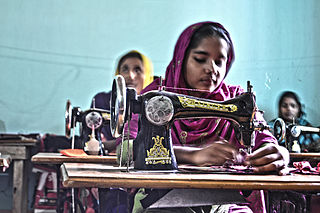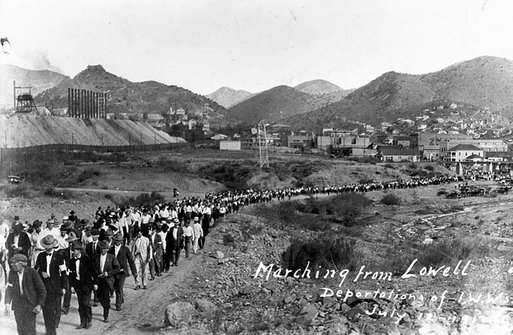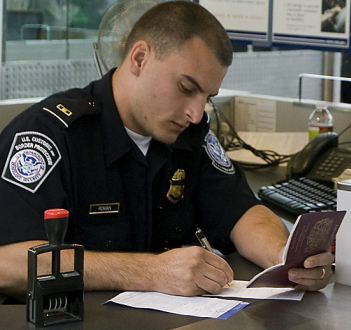A common restrictionist trope is that allowing people who have settled unlawfully to regularise their legal status would be an intolerable departure from legal tradition and the rule of law. But in his recent book Immigrants and the Right to Stay, philosopher Joseph Carens demonstrates that the opposite is true: our legal and moral traditions demand a rules-based system for regularising the unauthorised. Justice and the rule of law are perverted when they deny people due process and instead offer them justice so delayed that to call it anything but denied would make the term “delay” a mockery.
Carens’s basic contention: anyone who has lived in a community for a certain period of time can be reasonably considered a member of that community and should be afforded similar rights as other members of that community. This sounds rather abstract, so let me put this to you: someone is a pillar of your community. Attends your religious services, well, religiously. Always ready to lend a helping hand when a neighbour could use it. Always the first to chip in a donation for someone in need. Never in trouble with the law. One day, the authorities raid his home and evict him, on the grounds that a long, long time ago, he didn’t fill out the right form allowing him to join this community. Not that he murdered someone; not that he trafficked drugs; he filled out the wrong forms, and that makes him “illegal”.
Carens’s contention, which makes eminent sense, is that your status as part of a community of people does not flow from a piece of paper. It flows from your contributions to and standing with your peers. We do not gain our humanity, our family, our friends, our neighbours from the law. We learn about and make our families, friends, and neighbours long before the law ever got or gets involved. In his book, Carens notes that the British immigration authorities once tried to deport an 80-year-old woman who had lived in the United Kingdom her entire adult life, and only public outrage stopped them. If living somewhere for 60 years makes you a member of the community, Carens notes, then might not a shorter time period still grant you similar standing? He ultimately proposes a waiting period of 5 to 7 years. Irrespective of what the right period should be, the principle is clear: living somewhere in peace with your fellow man eventually makes you a part of that community. The law cannot tear that community apart without tearing up basic morality.
Carens notes that tradition is on his side: that even countries like the US, where today any amnesty is seen as taboo by many, have a long history of allowing people who have lived there for a certain period of time to regularise. Even today, many countries have ongoing rules-based regularisation regimes: simply identify yourself to the authorities, present proof you’ve lived peacefully in the community long enough, and the sword of Damocles over your head is lifted.
Basic legal principles are on Carens’s side too: typically, the statute of limitations on most crimes isn’t more than a few decades, and for many crimes it’s under a decade. (The statute of limitations refers to the period of time after a crime after which the state can no longer prosecute you for it.) In most jurisdictions, only the worst crimes, such as murder, don’t have a statute of limitations. As I’ve written before, the US legal system treats crossing an imaginary line (which harms nobody) as a crime worse than exploiting children for sex. US law essentially sends the message that crossing a border illegally is worse than filming child pornography or committing murder!
And regardless of what harm may inherently occur from crossing an invisible and arbitrary line, I certainly don’t think you can reasonably compare it to filming child pornography or murder. The primary “harm” of non-violent border crossing is economic competition between foreigners and natives. But how is Josef “stealing” a job from Joe supposed to be harming Joe, while John taking a job Joe could have taken isn’t any harm at all? Why do we criminalise Josef from earning an honest living because it might “harm” someone, while we allow Johns to steal jobs from Joes every day? Competing on a level playing field is not an infringement of anyone’s legal rights, unless you believe some people are less human than others.
And yet dehumanisation of the foreign-born is yet another message which the legal system sends: we give inanimate objects more rights than people. The robot that “steals” your society’s jobs has an easier time getting into the country than a foreign-born person who might be able to do that robot’s job for even cheaper. And what does that robot contribute to your society? Maybe it creates jobs for robotics maintenance crews, but that’s about it. The human being is a living, organic part of our community — he or she creates jobs for and immeasurably enriches the lives of landlords, restauranteurs, hairdressers, community organisers. Despite this, most countries’ laws look more kindly on importing inanimate objects that “destroy” jobs than they do on allowing free people to come in and “create” service jobs. And we have somehow deluded ourselves into thinking that this legal system makes moral sense: I once asked a free trade advocate why he opposes liberalisation of immigration laws. He proudly told me that it was because he believes, I quote, “people are not commodities.”
Sure, you can pretend your legal system humanely does allow immigrants to come. But most people consider waiting a year for any government document a rather intolerable delay. For many immigrants — on occasion, even the spouses and children of citizens — a year’s wait is far better than anything they got. Some immigrants to the US are getting their visas today after waiting in the “queue” for over two decades. Many of the “queues” for US visas are backlogged by decades — 80 years in some cases. And the US has one of the better immigration systems out there! Is it even right to speak of a queue for immigration to the UK, when the government’s avowed goal is to cut net immigration essentially to 0 — and it has every intention of accomplishing this by hook or by crook, regardless of how many families and communities and jobs it must destroy? If the phrase “justice delayed is justice denied” was not coined to describe the world’s immigration laws, it seems remarkably apt.
The world’s numerous legal systems have tried to ban many things in the past. They have experimented with banning various sexual acts among consenting adults, banning alcohol production/distribution, banning interracial families. They have tried and they have failed. What we find is that pretending to enforce the unenforceable only engenders disrespect for the law. It makes a mockery of the rule of law when we concoct laws that cannot be enforced. Now, these are not laws that many people were willing to risk their lives to violate — yet these laws could not stand. Meanwhile, every single day, innocent people around the world risk death in deserts or on the high seas to get into countries that offer them no legal way to enter. What hope have we of ever enforcing a law that bans innocent, hardworking people from supporting themselves and taking care of their families?
Moralists and conservatives often worry about what message the law is sending. I have to agree: what message does the law send when it deports a mother for caring for her children? When it denies the husband a visa to live with his wife? When it tells the hardworking wage-earner, “Sorry — the queue is 50 years long, don’t even dare send an employer your CV”? We are making a mockery of fundamental morality when we criminalise the family and we criminalise honest wages. As Carens says, the law is violating social reality.
Yes, the message is supposed to be: when crossing made-up lines on the map, identify yourself to the proper authorities. Somehow this is a crime worse than exploiting children for sex, and at least as bad as murder. If that is the message the law wants to send, ok. But if our message really is that innocent people identify themselves properly, why not allow them to do so? If this really is your concern, what do you have against allowing people to identify themselves after they have entered — or simply allowing people to enter and identify themselves at regular ports of entry, instead of making them wait in a queue that’s so long, it shouldn’t be called a queue at all?
There are a lot of things we could do to move to a more just legal system, one offering all people the due process they deserve. But Carens’s moral and philosophical case for ongoing regularisations intrigues me, precisely because it so neatly reconciles many of the moral absurdities of arbitrary immigration restrictions with the rule of law. Offering people a transparent legal process to acknowledge their standing as contributors to our society and community resonates with the principles of justice. The punishment fits the crime, if you can call crossing a made-up line a crime at all.
We wouldn’t send people to jail 40 years after the fact for a speeding ticket. So why would we wreck families and communities years or decades after the fact? When we are presented with such absurdities, as shown in the case of the grandmother facing deportation from Britain, we recoil because we recognise that the law is destroying the community and imposing a punishment all out of proportion to the offense. A legal mechanism for regularising “illegals” should be essential for any civilised society. If we can’t have truly open borders, we should at least have an immigration regime that doesn’t make a mockery of the rule of law. Only barbarians believe the law should send the message that the just reward for doing our job or taking care of our family is deportation and exile from the place we call home.



